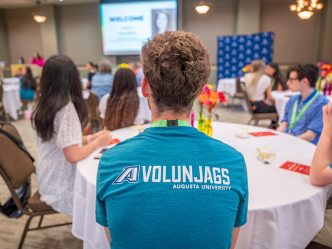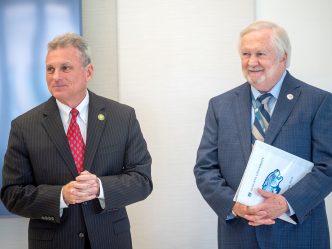Patients in rural Georgia communities will soon have access to some of the nation’s top emergency medical specialists without ever having to leave their community hospital, thanks to a $368,501 grant from the U.S. Department of Agriculture issued early last year to Augusta University Health to create Georgia’s first emergency telehealth network.
“Residents of rural communities often lack sufficient access to health care services and specialized treatments, with no other option than to travel long distances to Augusta or forego treatment completely,” said Augusta University President Brooks Keel.
“It’s actually a very exciting grant that allows us to build on our prior successes with telemedicine,” said Dr. Richard Schwartz, chair of the AU Department of Emergency Medicine and Hospitalist Services, in an interview with the Augusta Chronicle last year.
Emergency room patients in five rural Georgia hospitals will be able to receive treatment in real time.
The five hospitals are the Hospital Authority of Miller County in Colquitt, Georgia; Crisp Regional Health Services in Cordele, Georgia; Emanuel Medical Center in Swainsboro, Georgia; Washington County Regional Medical Center in Sandersville, Georgia; and Wills Memorial Hospital in Washington, Georgia.
The current goal is to implement a successful model in all five locations by Jan. 1.
 Augusta University
Augusta University




